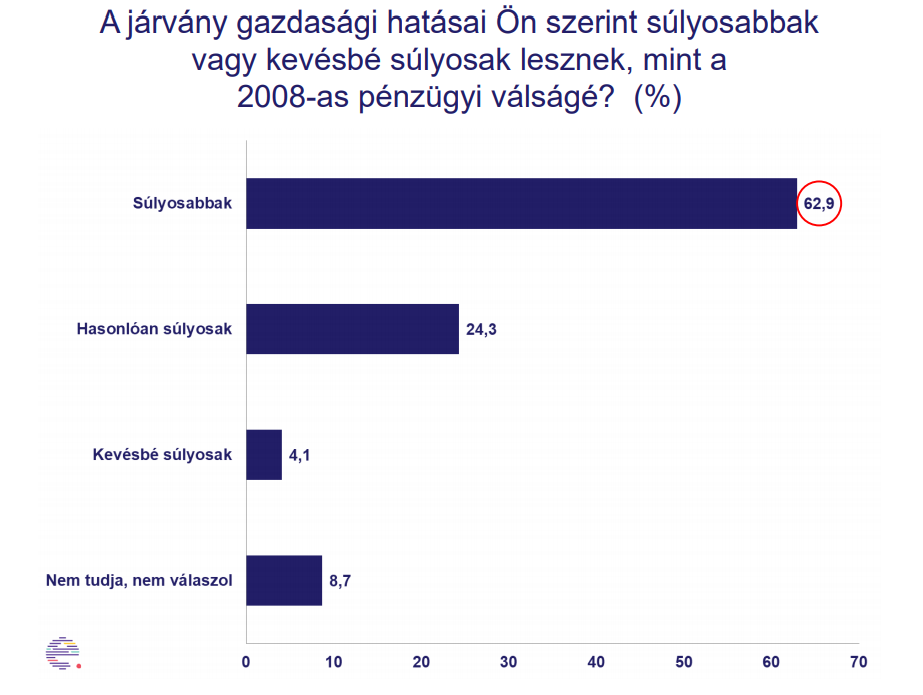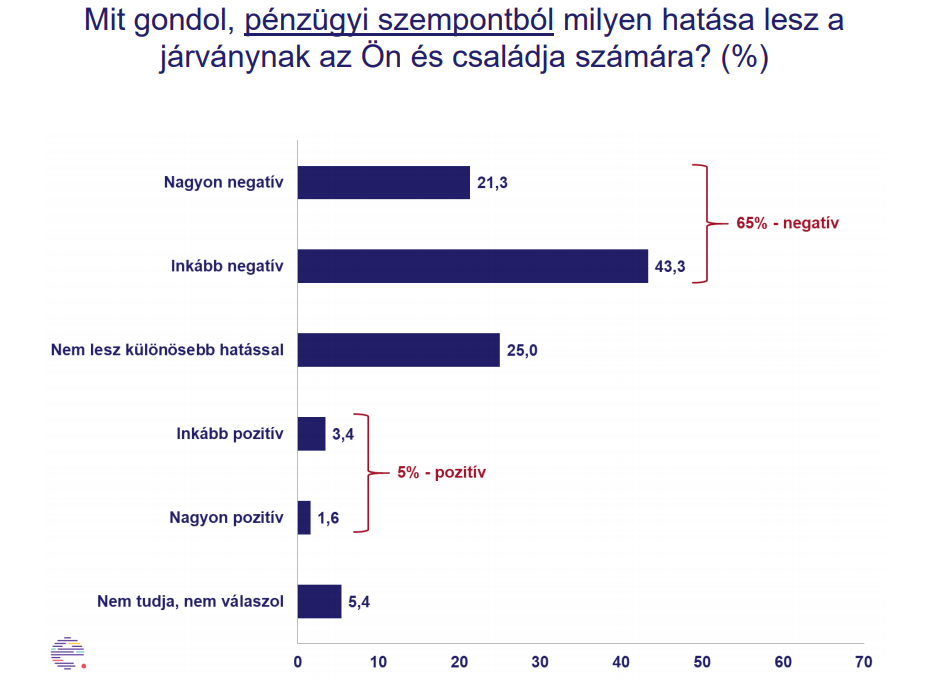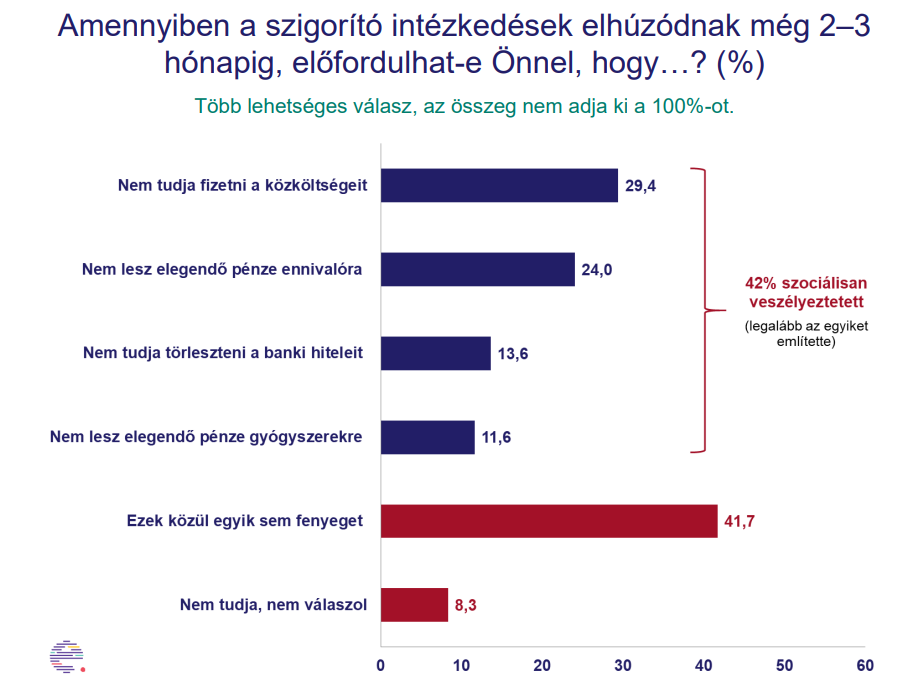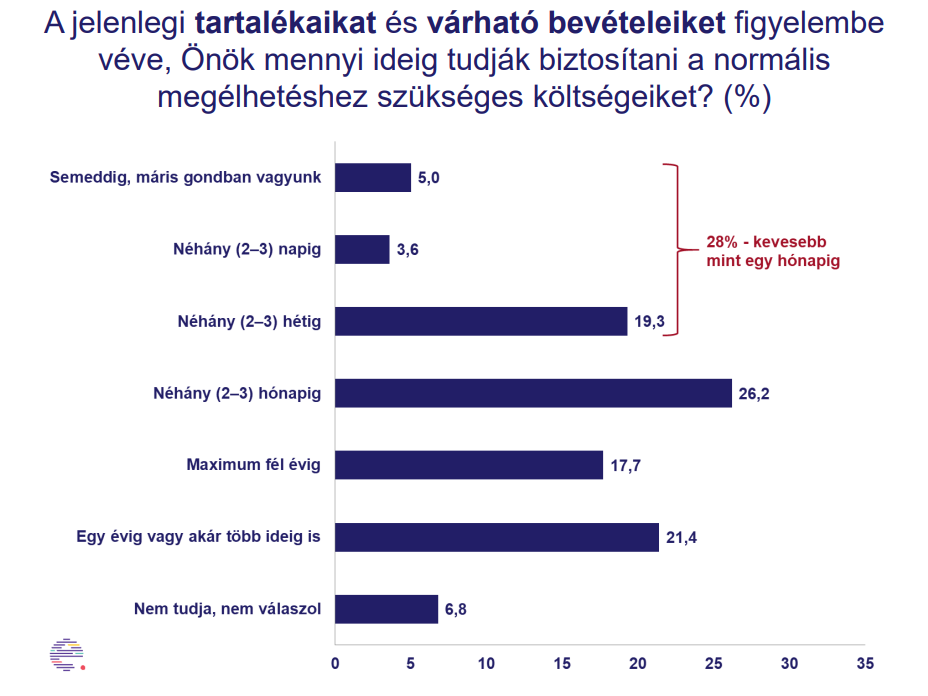The Hungarians living in Transylvania believe that the economic effects of the COVID-19 epidemic will be at least as serious as those of the 2008 financial crisis, results from the Coronavirus in Transylvania survey show. The study was conducted voluntarily by the Közpolitikai Elemző Központ Egyesület (Association of the Public Policy Analysis Center), which manages Erdélystat, a statistical website on Transylvania, and by the SoDiSo Research polling group. The latest results, published several days ago, focus on the economic effects of the pandemic and show that 15 percent of respondents are seriously endangered, meaning that a possible prolongation of the crisis may result in fundamental challenges to their ability to subsist.
The study focused on five major problems. The first and second parts of the results, regarding people’s general health and attitudes as well as issues with social distancing and movement restrictions, are already available on TransylvaniaNOW. In this third part, we present the economic and social effects of the epidemic.
According to the study, this situation is affecting everyone financially. While there is a consensus that the economic effects of the epidemic will be at least as severe as those of the 2008 economic crisis, the majority of the respondents are envisioning a more negative scenario.

Approximately two-thirds of respondents said their financial situation will worsen significantly, and only one-quarter hopes that the epidemic won’t have a lingering effect on household income.
Those who live in urban areas, youth, those with a low level of education and those who work in agriculture are more pessimistic. By economic sectors, those working in hospitality, commerce, industry and transport are expecting more negative scenarios.

Four out of ten people may end up in a vulnerable situation: 42 percent of the respondents are likely to have basic expenses they will not be able to cover if the epidemic lasts two or three months. For most of them (29 percent), paying bills will be problematic, while one-quarter fear they won’t have enough money for food.

If restrictions are not eased or special social benefits are not introduced, around 15 percent of respondents could find themselves in a serious situation in the short term: Even buying food could be a problem for them within a month.

The severely vulnerable are overrepresented among youth living in Szeklerland and the Partium region, as well as those with a middle-school or vocational-school education. By labor market activity, the most affected are unskilled workers, those with jobs that do not require specific qualifications, those employed in services, the self-employed and farmers who produce food for their own families. By economic sector, those working in trade, hospitality, light industry and construction are facing above-average existential vulnerability.
The study was conducted between April 1-10, with the participation of 7,450 people. The survey was carried out online and via phone.
Title image: One-quarter of the respondents fear they won’t have enough money for food. Photo: Egészségkalauz.ro